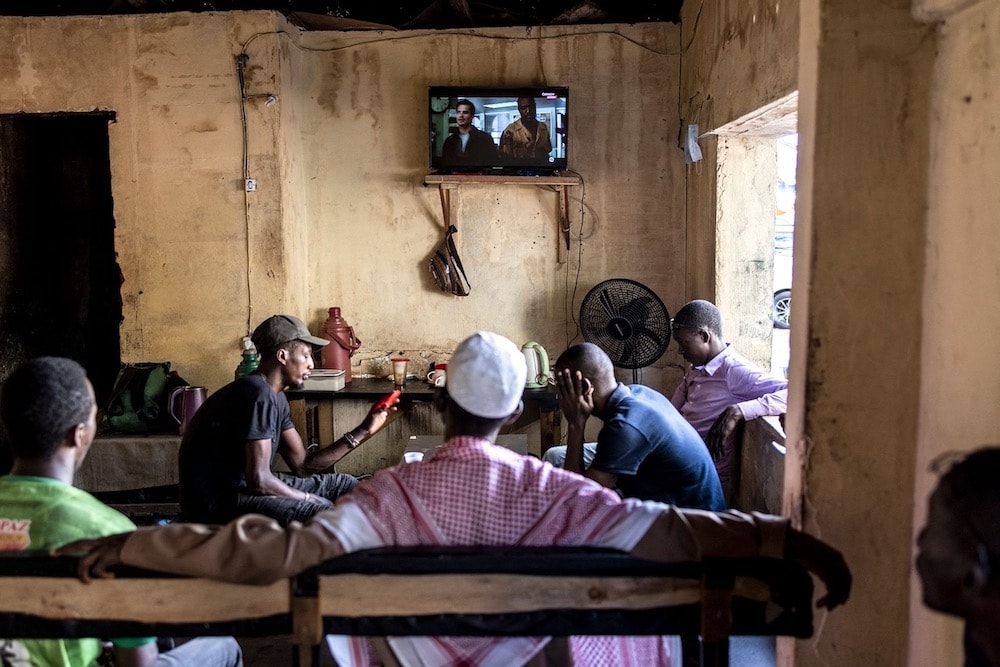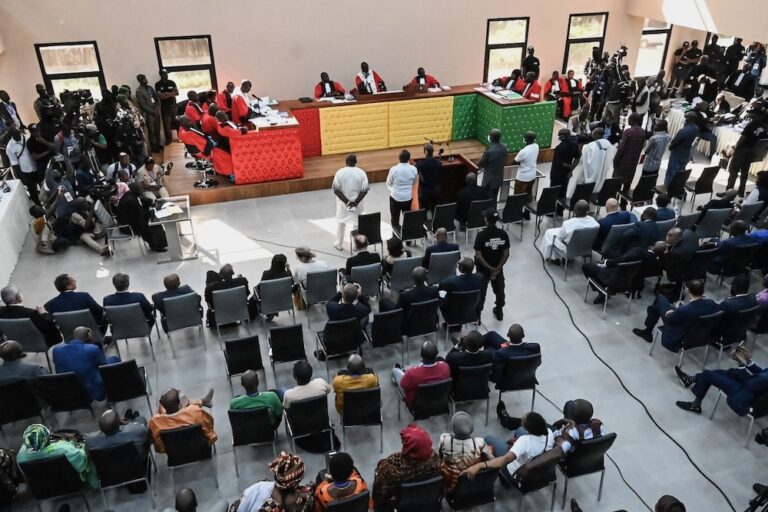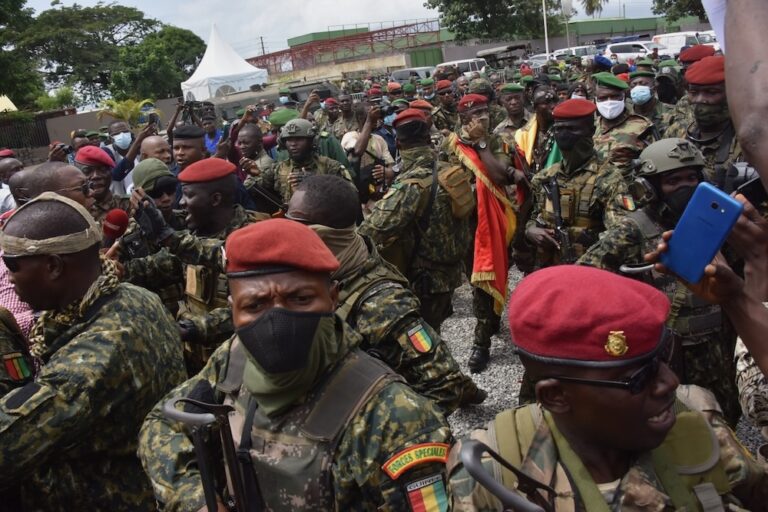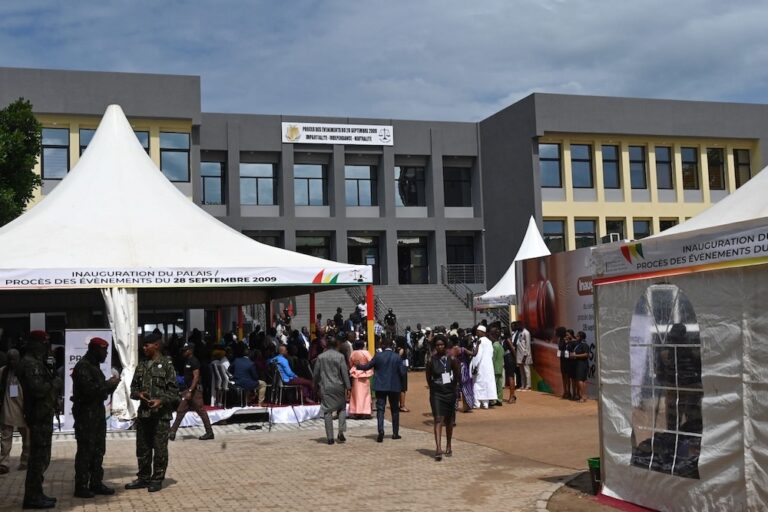A nationwide media blackout by media associations was designed to magnify the control the ruling junta is imposing on the media.
This statement was originally published on mfwa.org on 11 December 2023.
The Syndicat des Professionnels de la Presse de Guinée (SPPG), and other Guinean media associations have declared a press-free day in response to what they say is a climate of repression that the ruling junta is foisting on the media.
As part of the protest, television screens and news websites will display the message “press in danger,” while radio stations will observe a symbolic silence, commencing at 5 am today, December 11, 2023. The press-free day aims to bring attention to the deteriorating state of press freedom in Guinea.
The SPPG announced the protest through social media, urging a united response to the challenges faced by the Guinean press, adding that the journalism profession in Guinea is being threatened with extinction.
“The danger is that out there does not threaten just one side – our freedom and our jobs are under threat. The bosses of media companies are also under threat. It’s a fight for survival, a fight for honour, we’re going to save our honour, we’re going to restore dignity,” said Sékou Jamal Pendessa, the Secretary General of the SPPG.
The junta has in recent times cranked up its repressive machinery against the media. The last straw was a December 9, 2023, order from the media regulator, Haute Autorité de la Communication (HAC), for the pay-TV broadcaster Canal+, to suspend channels like Espace FM, Espace TV, Evasion FM, and Evasion TV, citing “national security” reasons. This decision follows a similar action against Djoma radio and television on December 6, 2023.
The government claims that these measures are not intended to muzzle the press but to address issues such as “the promotion of communal hatred, the escalation of social and political tensions, and the propagation of divisive discourse.”
The HAAC says it took this decision following a referral from the relevant government departments on issues of national security, which led to the holding of an extraordinary plenary session.
According to some local media, the channels withdrawn from Canal+ are among the most closely followed. For Espace TV, its “offenses” may not be unconnected to the hosting of Cellou Dalein Diallo, President of the IFDG, one of Guinea’s biggest political parties, on its platform on December 6.
The latest measure is deepening public suspicions that the government is targeting the affected media organisations, which are all victims in ongoing restriction of signals. Since late November, these same media organisations and their channels – Espace TV, Evasion TV, Evasion FM and Djoma FM – have been jammed, along with FIM FM. Social media has also been restricted in Guinea, with WhatsApp, Facebook, Instagram and TikTok accessible in the country only via virtual private networks (VPN).
The media in Guinea has also witnessed a series of repressive measures. On September 1, 2023, (four days to the second anniversary of the 2021 coup), access to the Inquisiteur.net was restricted in the country, in what the management of the news website consider an attack by the government. Another critical news website, Guineematin.com, has, since August 15, 2023, been inaccessible except via VPNs.
In another brutal show of force, security agents attacked and arrested a dozen journalists on October 16, for defying the junta’s ban on public marches. The journalists were protesting the restriction of direct access to the news website Guineematin.com.
In a recent press release, the SPPG and other press associations referred to key figures in the current military government, including Prime Minister Bernard Goumou and government spokesman Ousmane Gaoual Diallo, as “enemies of the press”.
The Media Foundation for West Africa (MFWA) strongly condemns the suspension of Espace FM, Espace TV, Evasion FM, and Evasion TV from the Canal+ network and calls on the government to reverse its decision. We also call on the HAC to stand firm for press freedom rather than capitulate to pressure from the authorities and abet their repression of critical media organisations. The Guinean authorities must engage the media as a key partner in the transitional process rather than as an enemies to be suppressed.



